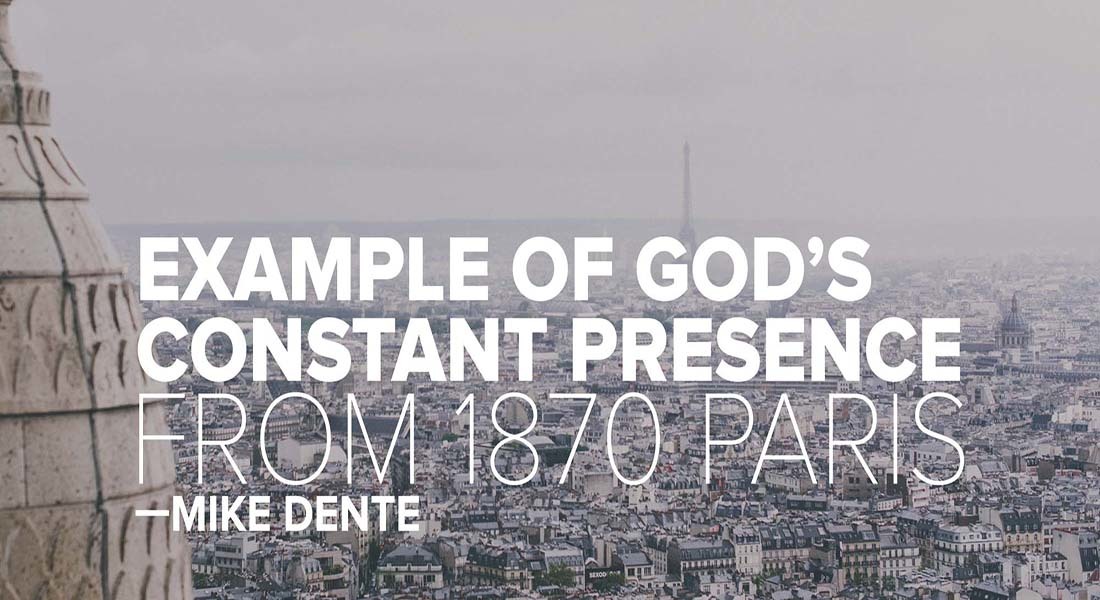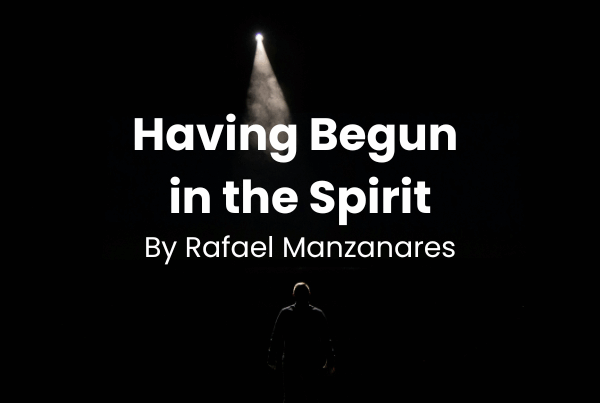
There are times in history that seem difficult to find the Gospel light (periods when Christians appear to be lost in the background of governmental upheavals and war). Often, these are used by critics of the faith who point to a Christian country teetering towards chaos, the atrocities that follow, and say, “Where was your God then?”
One such moment in history was the Siege of Paris by the Prussian Army from September 1870 to the end of January 1871. A pastor of the Église Réformée of France, Ernest Dhombres, living and preaching in Paris during that time, kept a record of what he saw and taught during the siege.
How did Paris come under siege? France, at the time, was in its second empire ruled by Napoleon III, the nephew of the famous Napoleon. He was elected president of the second French Republic, toppled the government while in office, and proclaimed himself Emperor while sending his enemies, such as Victor Hugo, into exile. Through various reforms, he was able to make good on some of his promises to return the nation’s past-glory, but lacking his famous uncle’s military skills, he plunged France into a conflict that would end his reign – the Franco-Prussian War (1870-1871).
After Napoleon III surrendered at the Battle of Sedan, the Prussian armies pushed forward to surround Paris, sealing it off from the rest of France. The city never officially surrendered but resisted beyond expectations and eventually formed its own government. During the Siege of Paris, the population endured the shelling of it’s attackers, the loss of thousands of lives, and a severe famine where even rats were sold as meat for two francs a piece.
So it was, between the moments of great suffering, military defeat, famine, continued war and a future internal conflict that would forever change a people, that Ernest Dhombres recorded a work of God that brought life and light.
There was repentance.
In the sermons he preached, there was the call to repentance we’d expect, but there was also a brokenness and dependance on God. On Christmas 1870, while the Champs d’Elysee was a ruin of broken buildings, the trees lining the boulevards were cut down to heat homes, the gas lights of the city were extinguished, revealing the starry night above, Ernest Dhombres preached, “This is the heart of what must change, my brothers, what only the Gospel can change. It is necessary that man reconciled to God, must also be reconciled to his brothers. It is necessary that his selfishness be attacked at the root, because loving only self, as a great writer said, is hating others.” Ernest Dhombres records how churches were filled in every denomination, so that there were meetings everyday. There was a great fervor and more passionate prayer than ever before. At one point, he observes, “The name of God has appeared in conversations and the printed page…but they speak of God with sincere feeling because they see the hand of God in France’s trials.” Even clubs and theaters changed their programs, inviting pastors to address the crowds at public debates.
Ernest Dhombres tells of how people were focusing outward on others in need rather than on survival, a fact that he attributed to God’s moving in people’s hearts. The people of Paris were sharing all they could. Most concerts, public debates and theater pieces became fund raising events to help those in need. Shelter and clothing were distributed generously. People from all walks of life, even in the government gave generously what they could. Another phenomenon, so different than large city culture, was a new friendliness and openness to those suffering around them. Neighbors who had never spoken a word to each other. People from all walks of society guarded over the city at night while even the most sumptuous halls became hospitals, not by governmental ordinance but by free offering.
He writes about a unity never seen before in the city for the cause of Christ.
Prior to the war, there was division within Protestant circles regarding various doctrinal issues. These differences were put aside because pastors were needed in hospitals, on the fronts, carrying out victims and caring for their growing congregations. There wasn’t just unity among Protestants, but also among Catholics who found themselves working together by necessity for the cause of the city under siege.
Unfortunately, what happened after the Siege of Paris wasn’t restitution and rebuilding, but an insurrection and civil war that cost the lives of over 20,000 people in the period of one week. The effects of this dark time would be felt for decades to come, leading France toward World War I. But, can we say that God wasn’t present? No. He worked powerfully behind the scenes and laid the ground work for the expansion of Gospel in France and a revival among the Baptists.
The traces of God’s work can always be found by those who look.
I’m reminded of a phrase in Psalm 139:12 which says, “Indeed, the darkness shall not hide from You.” God’s grace is powerful enough to pierce any darkness. He hears all those who cry out to Him even when their presence will be shrouded from history. He reaches into human chaos and saves souls that will plant the seeds of the next harvest.
We don’t need to be the brightest or the most renown, an unknown voice like Ernest Dhombres will do. He may not have been the best orator of his day. He was not even what we would call the senior pastor. But he wrote an eye-witness account of how God brought revival, unity and hope in a desperate situation. May this can be an encouragement for us today as we continue to serve a glorious King who is actively saving souls, even in places we may never imagine it.






